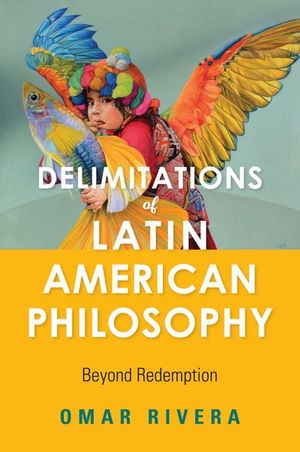Delimitations of Latin American Philosophy
Published by Indiana University Press
“[An] original view of José Carlos Mariátegui’s role in Latin American philosophy and his relation to identity, liberation, and aesthetics (Elizabeth Millán Brusslan, editor of After the Avant-Gardes).
In the nineteenth and twentieth centuries, Latin American philosophy focused on the convergence of identity formation and political liberation in ethnically and racially diverse postcolonial contexts. In this book, Omar Rivera interprets how a “we” is articulated and deployed in this robust philosophical tradition. With close readings of Peruvian political theorist José Carlos Mariátegui, he also examines texts by José Martí, Simón Bolívar, and others.
Rivera critiques philosophies of liberation that frame the redemption of oppressed identities as a condition for bringing about radical social and political change. Shining a light on Latin America’s complex histories and socialities, he illustrates the power and shortcomings of these projects.
Building on this critical approach, Rivera studies interrelated epistemological, transcultural, and aesthetic delimitations of Latin American philosophy in order to explore the possibility of social and political liberation “beyond redemption.”
In the nineteenth and twentieth centuries, Latin American philosophy focused on the convergence of identity formation and political liberation in ethnically and racially diverse postcolonial contexts. In this book, Omar Rivera interprets how a “we” is articulated and deployed in this robust philosophical tradition. With close readings of Peruvian political theorist José Carlos Mariátegui, he also examines texts by José Martí, Simón Bolívar, and others.
Rivera critiques philosophies of liberation that frame the redemption of oppressed identities as a condition for bringing about radical social and political change. Shining a light on Latin America’s complex histories and socialities, he illustrates the power and shortcomings of these projects.
Building on this critical approach, Rivera studies interrelated epistemological, transcultural, and aesthetic delimitations of Latin American philosophy in order to explore the possibility of social and political liberation “beyond redemption.”
BUY NOW FROM
COMMUNITY REVIEWS
